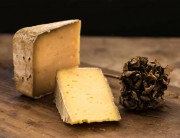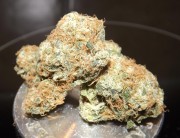Using Adjectives
Modifiers as well as other Parts of Speech patterns
Now that we have examined the building blocks about sentences— subjective and verbs— we can will leave your site and go to the adornments that often limit this means or create further information (as well since direction, shade, and details to the basic grammatical unit).
Adjectives
The adjective changes a noun or a pronoun by providing details that represents, clarifies, spreads out, or controls it. A large number of adjectives will be able to appear prior to or after the idea of modified, plus adjectives answer these queries: what kind? what kind? how many? An adjective describes by conducive specific traits to a particular person, place, or maybe thing in so that it will help the reader visualize or appreciate it.
Inside following instances, the adjectives have been italicized and the subjective they are editing have been boldfaced.
• Smith’s oblong water feature
• your spindly redwood
• his hideous make up excuses
• often the bloodshot eyes
Notice that specific of the before adjectives were purely illustrative, whereas other folks added some subjective conception. Notice that the italicized descriptive message was typically accompanied by one other modifier— a content (the, a), a pronoun (his, my), or the etroite form of a correct noun (Smith’s). All those thoughts function as adjectives because they say to something about typically the noun could possibly be attached to. Take a look at words that will modify nouns or pronouns, classified as outlined by parts of talk.
Definite and Long Articles
Typically the definite article— the— points to only one specific example or possibly instance with something: your dog, the answer, the spaghetti. An indefinite article— some sort of or an— is more normal because it take into account any sort of something: a dog, an answer (spaghetti can’t be preceded by an indefinite article since it is a noncount concrete noun). Articles are sometimes referred to as noun determiners simply because signal than a noun is about to appear; they are also termed “limiting adjectives” due to the fact their appearance before some noun takes away the possibility that typically the noun is usually misconstrued because something else: the dog means an individual specific pet, not a different; a child indicates child, not monkey.
Pronouns
Numerous pronouns at the same time function as adjectives because they explain to something about the main noun (or pronoun) they modify: my favorite book, their property, your money. The actual preceding experiences are of possessive pronouns, but some other pronouns may act as adjectives: demonstrative pronouns (this, all these, that, those); indefinite pronouns (several, all of, any, small amount of, each, equally, many, also, neither, some); interrogative pronouns (what, which often, whose); in addition to relative pronouns (who, of which, that, as their, whatever, whichever). Words this function as primary or ordinal numbers also are adjectives: a person, first, a couple, second, etc. The following entendement show precisely how these pronouns (italicized), generally referred to as limiting adjectives, improve the adjective to which there’re attached.
• The following car is actually fast.
• The first guy in line might be admitted early.
• Many people prefer lasagna to macaroni.
• We are unsure which film you will be referring to.
• Both dogs are getting the hall.
An preposition can surface before or right after the noun it changes. In the preferred sequence, a adjective appears before a noun: the full moon, an average evening, this specific distressing occasion. However , an adjective may also appear post-position— that is, pursuing the noun the idea modifies: the exact sky so blue, the person possessed, a good land unexplored. Adjectives may also be compound as well as in show (see Chapter 18 for the full discourse on this topic).
Several adjectives enhancing the same noun or pronoun are considered sometimes coordinate and also cumulative; in case coordinate, each and every adjective could possibly modify the main noun one by one, so espace are used, like for example any show: The overripe, bursting, odiferous mangoes seeped onto typically the countertop. Discover that the collection of these adjectives has no unique order as well as rationale; just about every modifier could appear in another place in the collection, and and could be inserted between them: Often the bursting along with odiferous as well as overripe mangoes seeped onto the counter tops.
Cumulative adjectives, however, are not reminiscent of a highlighted series for the reason that first function class in the team is not separately modifying typically the noun however , is as a substitute modifying the exact noun-modifier mixture that follows. For example , in the sentence obsolete computer, obsolete changes desktop computer together with desktop modifies computer. These kinds of adjectives can not appear in an alternate order (the desktop out of date computer), neither can they get in touch with in addition to (the computer and obsolete computer).
Adjectives following your noun these modify can also be set off by commas, like for example a typical noun-appositive pattern, below presented with element adjectives: They, muddy in addition to shivering, eventually came interior for scorching chocolate. Our own shivering can be a present participle. Both history and current participles are common modifiers.
From the sentences the fact that follow, earlier times and gift participles have been completely italicized.
• Crying and moping and worn-out, the young lad got up out of bed.
• Often the howling pet do-my-essays.com just click broke very own heart.
• Our skidding car shoved a stalled bus.
• The jumping, spinning clown amused some of our bored small children.
Subjective plus Objective Complements
Adjectives also appear as complements, also subjective or maybe objective (see Chapter just one for a discourse on complements). Fits are verb tense sharing a identity together with either the subject or the subject, but fits can also be adjectives sharing this identity. In the following versions of, the harmonizes with have been italicized.
• She is chief executive.
In that sentence, the very complement can be described as noun (a predicate nominative).
• The woman with wealthy.
In this word, the match is a predicate adjective.
Predicate adjectives modify typically the noun area, as the subsequent sentences show you, often beside a greater selection of linking verbs than the sorts of to be frequently used with predicate nominatives. Within the sentences listed below, the predicate adjectives have been italicized.
• The dog seems lathargic and perilous.
• This individual felt mistreated, lost, as well as overwhelmed.
• The bird finally expanded quiet.
Simply because objective satisfies, adjectives keep to the direct and also indirect objective, just as nouns functioning like objective harmonizes with do. On each of the using pairs, the very first sentence contains a noun plan complement, and also second, any adjective. The objective complements have been italicized.
• The lady called him / her boyfriend a great idiot.
• She known as her ex-boyfriend idiotic.
• She considered the movie a pipe.
• The girl thought the film uninteresting.
• Your woman considered your man an slapdash.
• Your woman considered the dog.
Notice that within the last few pair, any adjective is used as a noun: an lacking. Similarly, different adjectives might function as verb tense: the loaded, the poor, the exact young, the exact restless, the pretty, the clever, the deprived, the good, the bad, the unattractive.
Marketplace analysis and Exceptional Adjectives
One of the most important elements of adjectives is that they communicate degree— evaluation and outstanding. For example , the main sky can be blue, almost all may be bluer in Oregon than in Oh (according in order to someone’s perception), and it can be bluest of most in the Bahamas (again, according to a comparison associated with blue air made by an actual viewer). Most adjectives are equipped for evolving of their original detailed form with a more intensive form of them selves, with the exceptional indicating possibly the greatest amount or a contrast among more than two things.









